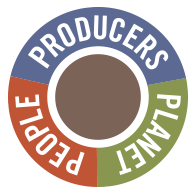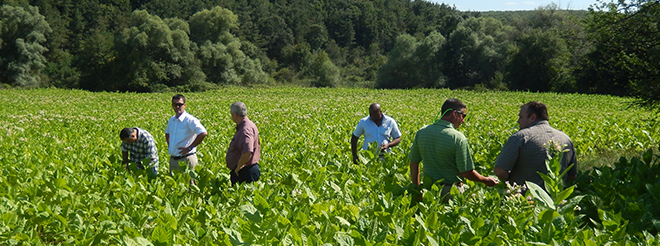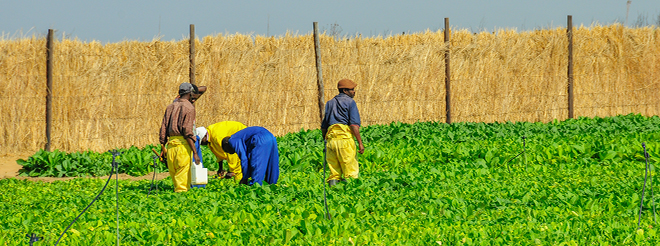 Giving our contracted growers the tools and opportunities to create better lives for themselves and their families is essential to empowering the next generation of growers. Through model farms, process enhancements, and improved growing techniques, our global team of more than 1,000 agronomists and field technicians educate hundreds of thousands of growers throughout the world on new ways they can improve their productivity and efficiency, reduce their impact on the environment and generate a better income for their families.
Giving our contracted growers the tools and opportunities to create better lives for themselves and their families is essential to empowering the next generation of growers. Through model farms, process enhancements, and improved growing techniques, our global team of more than 1,000 agronomists and field technicians educate hundreds of thousands of growers throughout the world on new ways they can improve their productivity and efficiency, reduce their impact on the environment and generate a better income for their families.
A key aspect to improving growers’ yields, quality and efficiency, and therefore their livelihoods, is education. Alliance One introduced the Good Agricultural Practices program to its contracted growers in 2007, with our Agricultural Labor Practices program following in 2011. Alliance One’s network of agronomists and field technicians regularly meets with our contracted growers to educate them on best practices as well as monitor them for compliance with our company policies.

Not only do Alliance One’s agronomists educate our contracted growers about how to improve agricultural and labor practices, they also help them understand best practices for running small businesses. We have found that this comprehensive approach helps to ensure that growers see an improved standard and quality of life. When growers become more efficient, their yields and quality improve, thereby increasing their income and freeing up other resources, such as land, water and finances, so that they can grow other crops to supplement their income and food. We recognize that financial literacy of our farming families is an issue that needs to be addressed in order for growers to be self-sustaining for the long-term. As the financial literacy of our contracted growers varies by origin, we are reviewing our approach to this issue to determine the best way to support our farmers in this area.
In addition to education, we strategically develop farmer input packages tailored to meet the needs of each contracted grower. These packages vary by country, tobacco type and type of contract, and our agronomists work carefully to select the right inputs to include in the packages. Cash advances are provided to growers who are at a high risk of having inadequate funds to pay workers during periods of high labor requirements. These advances allow farmers to hire the labor they need, which helps eliminate pressure to use illegal or child labor.
In many cases, the educational expertise and input packages provided by Alliance One help growers improve the quality of their food crops, in addition to tobacco. Growers' families find an increase in food security and they often have enough left over to sell at profit.
Malawi has been directly contracting with growers for several years and many of them have seen significant improvements in their livelihoods as a result. For example, one grower started growing burley tobacco in 1981. He produced an average of 1200 kgs/ha when he began contracting with Alliance One Malawi in 2005 and now produces an average of 2400 kgs/ha. He is now more food secure is also able to pay secondary school fees for his children and one relative at the Malawi University. This grower has built a brick house for his family, as well as a second house for his parents, and has raised a woodlot.
Another grower began contracting with Alliance One Malawi in 2009 and has tremendously improved his production from a mere 0.4 hectares to 1 hectare. With the proceeds from his tobacco crop, he has built 3 iron sheet roofed houses with cemented walls and floor and purchased two TV sets, furniture, a motorbike and a pair of oxen. He has also now diversified his crop to include corn, beans and sunflowers. Prior to his contract with AOI, this individual’s yield ranged between 400 and 500 kilograms. He now averages 1,500 kilograms.
 In addition to the research and development of new technology that improves the efficiency of tobacco production, our teams of field technicians and agronomists teach growers ways to enhance the quality of their tobacco so the producers can earn a better income for their families. In Zimbabwe, we’ve reorganized our grower management structure to make our leaf technicians more available to local growers. This restructuring has resulted in a higher quality tobacco, which is produced at a reduced cost–all of which creates a better income for the growers and their families.
In addition to the research and development of new technology that improves the efficiency of tobacco production, our teams of field technicians and agronomists teach growers ways to enhance the quality of their tobacco so the producers can earn a better income for their families. In Zimbabwe, we’ve reorganized our grower management structure to make our leaf technicians more available to local growers. This restructuring has resulted in a higher quality tobacco, which is produced at a reduced cost–all of which creates a better income for the growers and their families.